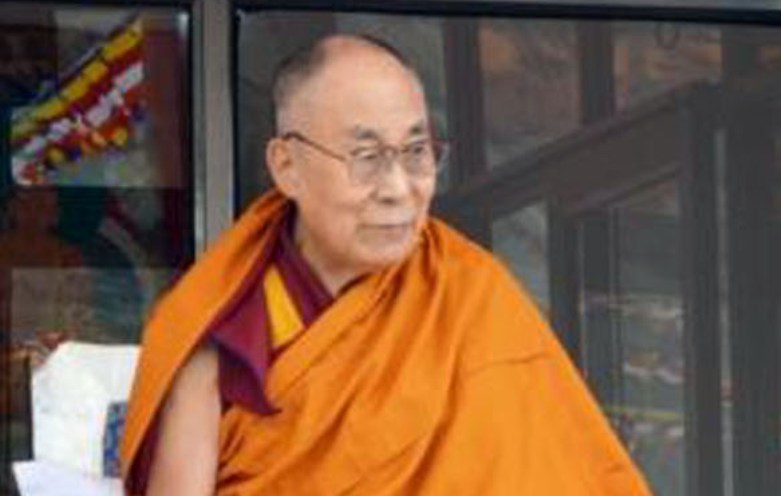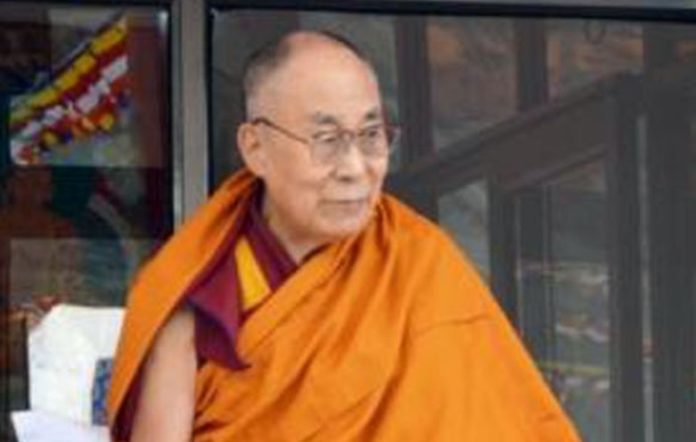SRINAGAR: In a significant development for Tibetan communities across Jammu and Kashmir, the Tibetan Parliament-in-Exile announced a delegation’s forthcoming visit to Srinagar, Kargil, and various regions of Ladakh. The delegation, comprising parliamentarians Geshe Lharampa Gowo Lobang Phende and Phurpa Dorjee Gyaldhong, will embark on this extensive tour from October 7 to October 21, 2024, reports appearing in media suggest.

This visit holds profound historical and cultural importance, rekindling memories of the Dalai Lama’s 2012 maiden visit to Srinagar, during which he met the Tibetan refugee community and local leaders, emphasising interfaith harmony and compassion.
The delegation’s itinerary includes a series of meetings across Ladakh’s key areas such as Leh, Zanskar, Nubra, Dhurduk, and the Tibetan settlements of Jangthang Nubma, Kakshung, Goeyul, Hanley, Makyu, Chumur, Sumdoe, and Samedh. They are expected to engage with the Tibetan communities to address issues of welfare, education, and preservation of Tibetan cultural identity amid evolving geopolitical scenarios in the region.
Their visit will begin in Srinagar, where they will spend two days meeting with local Tibetan refugees, a reminder of the deep historical ties between Kashmir and Tibet that stretch back centuries.
The two-day engagement in Srinagar revives memories of the Dalai Lama’s visit in July 2012, when he met with both Tibetan and Kashmiri leaders. At the time, he was welcomed by the then-Chief Minister Omar Abdullah, who conveyed his government’s support for the Tibetan refugees.
During his 2012 visit, the Dalai Lama’s interactions with the Tibetan Muslim community in Srinagar stood as a powerful symbol of interfaith harmony. Tibetan Muslims, a small but historically significant community in Kashmir, have their roots dating back to the 8th century CE, when Muslim traders began settling in Tibet. By the time of the fifth Dalai Lama, Tibetan Muslims had become an integral part of Tibetan society, granted special rights and recognition. The Dalai Lama’s 2012 visit was the first to Kashmir after his retirement from active politics, focusing on meeting these Tibetan refugees who fled Tibet in 1959 following the Chinese occupation.
His Holiness had expressed deep admiration for the Tibetan Muslim community’s resilience, recalling the rich cultural exchange between Tibet and Kashmir over the centuries. The community’s history was shaped by centuries of trade and migration, with many Kashmiris settling in Tibet, intermarrying with Tibetan women, and becoming part of the Tibetan cultural fabric. These Tibetan Muslims were later repatriated to India after the Chinese occupation of Tibet, where they found refuge in Kashmir.
The current delegation’s visit, echoing these shared histories, will undoubtedly focus on sustaining this cultural and religious harmony. After leaving Srinagar, the MPs will travel to Leh on October 11, where they will meet with Tibetan and Ladakhi Buddhist leaders. The Leh meetings are anticipated to include discussions on preserving Tibetan heritage and bolstering education initiatives within Tibetan settlements in Ladakh, especially those affected by the Sino-Indian tensions and recent border challenges.
Following their engagements in Leh, the delegation will travel across Ladakh, meeting Tibetan communities in remote areas like Zanskar and Nubra. On October 14, they are set to visit settlements in Jangthang Nubma, Kakshung, and Goeyul, with further visits scheduled to Hanley, Makyu, Chumur, and Sumdoe between October 16 and 18. These settlements are crucial to the Tibetan community’s socio-economic stability, and the delegation is expected to discuss local education, healthcare, and cultural preservation measures.
Reflecting on the Dalai Lama’s 2012 address to the Tibetan Public School in Srinagar, where he praised the school’s efforts to promote interfaith harmony, the Tibetan parliamentarians are likely to emphasise the need for continued support for Tibetan educational institutions. The Dalai Lama, during his 2012 visit, had stressed the importance of education as the foundation of inner peace and happiness, calling for a balance between material development and moral values in the curriculum.
The delegation will conclude their tour on 21 October in Leh before returning to Dharamshala, where they will present a report to the Tibetan Parliament-in-Exile on their observations and recommendations for the Tibetan communities in Jammu, Kashmir, and Ladakh.


